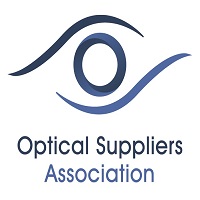The New Role of the Optometrist
Simple eye examinations got a whole lot better, but it’s a postal lottery as to where to go. In recent times Scotland has led the way in paying a greater fee for an extended eye examination. The Scottish Health Boards have insisted on a minimum level of equipment to provide the additional services all of which fall within the trained competencies of the Optometrist.. The same is true for Wales too.
Scotland has uniquely provided grants towards the very expensive equipment that is required to perform the service and coincidently there are no sight test fees for those resident in Scotland.
This is a fast changing sector with a similar project called PEARS trialled successfully in Wales and other projects being agreed locally with English PCTs. The purpose in line with the NHS plan and its follow up papers is to shift access and follow up care to the High Street Optician and away from the Hospital and GPs.
These projects over the past few years have been carefully monitored and have shown to be very successful both clinically and from the patients viewpoint, with easier access and cheaper parking for the patient or their carer and much decreased waiting times both for the appointment and at the practice.
The Hospital Ophthalmologists have also been very happy with the consequences as they have received better more accurate referrals from the optometrists than they received either from self referral or from the GP. In fact GPs are now directed in many cases to refer to optometrists within their area.
Much of post surgery work is also being moved into the community where optometrists assess the results and discharge if no anomalies occur or refer if they feel a follow up appointment is necessary at the hospital.
Optometrists, trained at University and within the profession for at least 4 years, are well versed in dealing with such conditions and where responsibilities for care fall outside their normal practice they take additional top up courses before being accepted as a provider of any specific care regime.
This has meant that the Optometrist has become a highly skilled health care professional and this quality backed by new innovative clinical equipment has taken Optometry to a new level.
But for those of us not under such care how can we access this new and improved eye care? Within the future ICS areas of England and Wales the Optometrists receives around £20 for a 30 minute test for an NHS sight test and on average charge around £24 for a private standard test. This test has to provide a method of detection of eye and general health problems as well as a prescription for any correction necessary. It is in fact fast becoming a standard minimal test compared to what can now be provided with the latest technology at a very high price to the Optometrist. This higher standard providing greater information about our eyes, often digitally recorded for comparison year on year will often provide a much earlier warning of eye problems to come as well as greater reassurance. It comes at an additional price which can be added to the standard NHS or private eye examination charge or sometimes can be paid for as part of a health plan.
In a separate section we discuss what extra tests can now be carried out at some of Optometrists under the Enhanced Eye Examination and we hope to flag up who can provide these new tests soon within our Practice Directory of Opticians.
Because of the high patient flow in the hospital eye clinics (the most visted of all hospital clinics) there are now a growing number of private optical clinics who house both optometry and ophthalmology skills working together reducing the gap between referral and treatment and taking the load off of secondary care. Your optometrist can advise and refer to such clinics on your behalf.



















